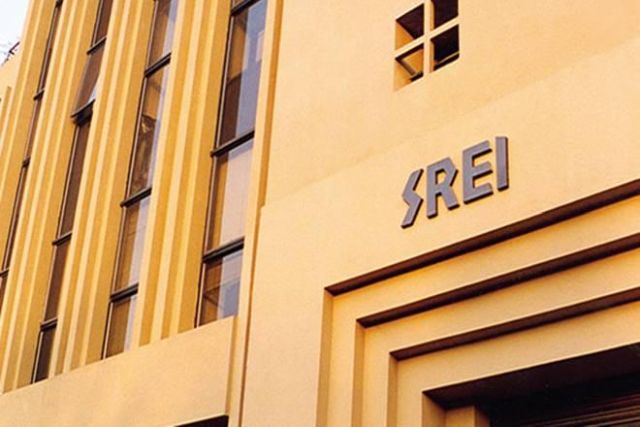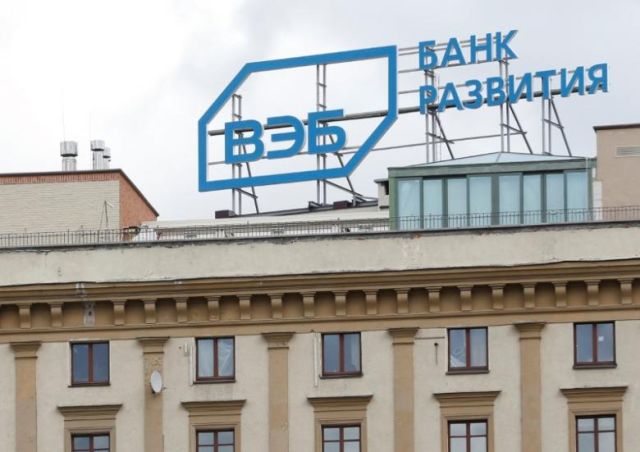
by admin | May 25, 2021 | Business, Corporate, Corporate finance, Economy, Finance, Investing, Large Enterprise, Markets, News
 Moscow : Russia’s state-run Vnesheconombank (VEB) and Kolkata-based Srei Infrastructure Finance have agreed on the operational terms for setting up an IT and innovation fund with a corpus of $200 million, the Russian development bank announced on Tuesday.
Moscow : Russia’s state-run Vnesheconombank (VEB) and Kolkata-based Srei Infrastructure Finance have agreed on the operational terms for setting up an IT and innovation fund with a corpus of $200 million, the Russian development bank announced on Tuesday.
The parties have already started to identify projects for the fund’s pipeline, which will include projects of Russian innovative companies, a VEB release said here.
“VEB-Innovations and Indian company SREI Infrastructure Finance Ltd signed an agreement on the terms and conditions to establish a Russian-Indian IT and Innovation Fund with the target size of investors’ commitment amounting to $200 million,” it said.
VEB said that as a next step, both parties will work to create the management structure for the fund, which is slated to be operational before the end of the second quarter of 2018.
“Particular emphasis will be placed on promising inventions based on a strong scientific and technological base of Russia and India,” it said.
“The Fund will also help build up trade in Russian and Indian cutting-edge technologies and their transfer to other countries,” it added.
“We expect the Russian-Indian Fund to help boost trade and economic cooperation between our two countries. For many IT companies, the Russian market is not enough for distributing their products. Cooperation with SREI will help them enter the market of India and the Asia-Pacific region,” Vnesheconombank Chairman Sergey Gorkov said in the statement.
“In June, we signed a memorandum of understanding. And next year the Fund will be ready to make the first investment,” said SREI Chairman Hemant Kanoria.
Apart from the Fund, VEB and SREI are actively promoting Russian high technology exports in the Indian market, the statement said.
—IANS

by admin | May 25, 2021 | Business, Corporate, Corporate finance, Large Enterprise, World
 Moscow : Russian development bank Vnesheconombank (VEB), which has signed an MoU with Indian firm Srei Infrastructure Finance to create a $200 million IT and Innovation Fund, has announced it will help the Russian government develop a mechanism of funding the national digital economy programme.
Moscow : Russian development bank Vnesheconombank (VEB), which has signed an MoU with Indian firm Srei Infrastructure Finance to create a $200 million IT and Innovation Fund, has announced it will help the Russian government develop a mechanism of funding the national digital economy programme.
“The Russian government has instructed three ministries to develop a mechanism of funding the programme Digital Economy together with Vnesheconombank. The Bank’s Supervisory Board will consider these issues in October,” VEB said in a release here on Saturday.
The Digital Economy programme, initiated by Russian President Vladimir Putin, aims to provide 97 per cent of Russian households with broadband Internet access by 2025.
“5G mobile networks should be deployed by this time in all cities with population of 1 million people,” the statement said.
“In September, we will open the first centre focused on blockchain, convergent, and quantum technologies at the National University of Science and Technology (MISIS). We plan to create a group of investment funds with external financing from both Russian and foreign investors,” VEB Chairman Sergei Gorkov said in the statement.
In June, Kolkata-based Srei and Vnesheconombank signed an MoU to create a $200 million IT and Innovation Fund, which will enable them to jointly explore investment opportunities in technology companies in Russia, India and other selected regions.
A group of Srei officials visited the Russian Quantum Centre here last month to check out technological solutions based on the principles of quantum physics that could be put to industrial use in the coming years.
In the background of recent cyber attacks that affected networks across the world, Srei is looking at purchase of quantum communication devices designed to protect crucial information and data against the upcoming threat posed by the development of quantum computing.
The classical blockchain technology, on which bitcoins are based for instance, permit quantum computers to falsify digital signatures, change programming and even allow network access to outsiders.
Earlier this year, Russia announced the development of the world’s first quantum blockchain which allows using a quantum cryptography and quantum data transfer system to protect databases from hacking. RQC says this device will be ready for industrial use by early next year.
The technology has already been tested by the RQC in one of Russia’s largest banks — Gazprombank — by creating a three-node quantum network between the branches of the bank in the Moscow region. RQC is now working to expand the capability to other Russian and international financial services organisations.
Quantum theory is about nature at its smallest scale and energy levels and describes the behaviour of sub-atomic particles like electrons, protons, neutrons and photons.
In silicon chips of classical computers, the unit of data is rendered in one of two states — 0 or 1 pertaining to true/false or yes/no state. However, in quantum theory, data could simultaneously exist in both states, holding exponentially more information. The unit, or “bit” in regular computing, becomes “qubit” in quantum theory, which can be either 0 or 1, or in superposition of them both at the same time.
This means that where a normal computer makes calculations sequentially, one at a time, a quantum computer would be able to process information simultaneously, thus making it much more powerful.
—IANS

 Moscow : Russia’s state-run Vnesheconombank (VEB) and Kolkata-based Srei Infrastructure Finance have agreed on the operational terms for setting up an IT and innovation fund with a corpus of $200 million, the Russian development bank announced on Tuesday.
Moscow : Russia’s state-run Vnesheconombank (VEB) and Kolkata-based Srei Infrastructure Finance have agreed on the operational terms for setting up an IT and innovation fund with a corpus of $200 million, the Russian development bank announced on Tuesday.
